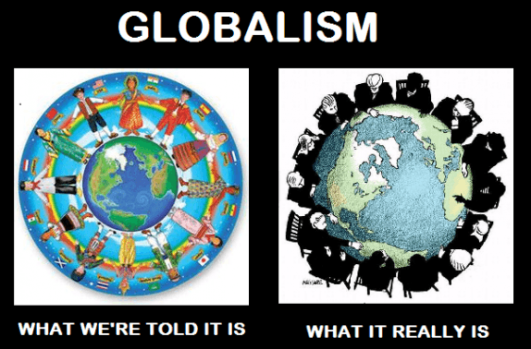I heard the news today that investigative journalist Robert Parry has died. This has prompted me to write a post on the topic of the Deep State. Parry made his name in journalism exposing the Iran-Contra scandal. In short, the Contras were a CIA-backed guerrilla army in Nicaragua that was locked in a struggle against the left-wing Sandanista regime. As reports of Contra atrocities emerged Congress blocked support to them. Never ones to let elected representatives get in the way of an operation the US Deep State network sprang into action diverting profits from secret arms deals with the Iranians (a US enemy) to the Contras in order to continue their support for the group covertly. This effort to aid the Contras would later be linked by journalist Gary Webb to Contra cocaine trafficking which contributed to the crack explosion in the United States during the 1980s. Webb would later go on to become the target of a smear campaign.
So what is a Deep State? Essentially it’s an informal network of high-level elements within government, Intelligence agencies, the military, military contractors, the judiciary, the corporate world (including the media) and even organised crime. It has it’s own objectives, often carries out illegal covert operations, and as elected leaders come and go it remains a constant presence. Sometimes it’s goals are in alignment with the government of the day and sometimes not.
In the past any discussion of a Deep State has been dismissed as nothing more than conspiracy theory by the mainstream media. Lately the term has started to enter into common parlance more and more as the entrance onto the political scene of Donald Trump has seen him use the term himself as well as his supporters who often talk about how the Deep State is out to take him down.
Most Western democracies will have a Deep State and there have been occasions – such as in the US with Iran-Contra – where it has risen to the surface just enough so that the media can’t ignore some of it’s actions even if they do play down the existence of the entity itself somewhat.
Although there is no suggestion of foul play in the death of Robert Parry the lives of other journalists whose investigations have breached Deep State territory have met with more suspicious ends. Danny Casolaro encountered the Deep State while investigating the theft by US justice department officials of the PROMIS tracking software in what has become known as the Inslaw Affair. He was found in a motel bathroom with his wrists cut and his research folder missing (see here and here). It was ruled a suicide. The aforementioned Gary Webb – whose story was told in the movie Kill The Messenger – was found with two gunshot wounds to the head. It too was ruled a suicide. Rolling stone journalist Michael Hastings died in a fiery car crash after telling friends and family he was on to something big and was going into hiding.
As for Robert Parry, his determination to follow Deep State threads ultimately led him to leave mainstream journalism and go independent in the 1990s. There is no place for real investigative journalism in the mainstream arena. Especially when those investigations involve the activities of the Deep State.
Danny Casolaro had his own name for the Deep State. He called it The Octopus. In 1993 his death was featured in an episode of Unsolved Mysteries:
See Gary Webb’s story here:
